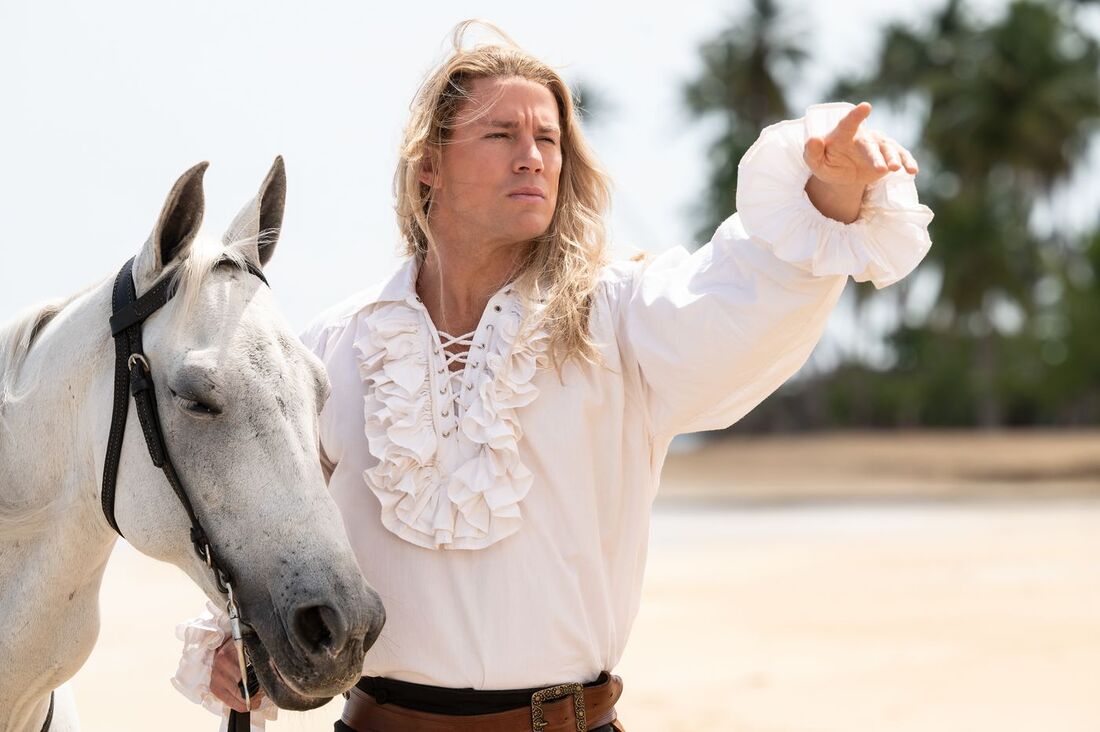A 112-minute ode to lowbrow culture, The Lost City embraces Alan’s love of making people happy and scoffs at Loretta’s snobbery. The film doesn’t insist that the lowbrow thing, romance novels, is good or that it has craft to it as much as it’s fine that the lowbrow thing is dumb but entertaining. This is the ‘let people like things’ of movies, and it engages with itself on the same level. Comedy is another discounted art form, especially romantic comedy, and the Nee’s let themselves get silly, especially with Tatum. A man that beautiful shouldn’t be this charismatic, and he’s got the example of Pitt beside him as the prototypical godlike icon. The film makes effective use of Tatum’s ability to look foolish, to acknowledge that all this musculature is for show instead of utility. He’s not serious just like the movie that contains him isn’t, and that’s okay. The Lost City isn’t reinventing anything as much as it’s insisting that there’s still a place for things like it.
As fun as it is, the film does lose track of its protagonist. Bullock plays straight woman against Alan’s and Abigail’s larger characters, and she’s an enamored puddle around Trainer, a man so powerful and sensitive that he gently kisses goons after he puts them in sleeper holds. This is a fine place for Bullock’s persona, but it leaves the most compelling aspects of her character behind. Where did she make the transition from archaeologist to novelist? Which one came first? Switching between an academic and a popular pursuit, caring about one more than the other, and being celebrated for a thing you don’t respect are all fascinating character traits, but The Lost City is more interested in watching Loretta use cosmetic face masks to sooth Alan’s bug bites. As funny as that visual is, it doesn’t elaborate on who Loretta is. She’s the lost character in The Lost City, a film that finds considerable value within its cast’s natural strengths. B-

 RSS Feed
RSS Feed